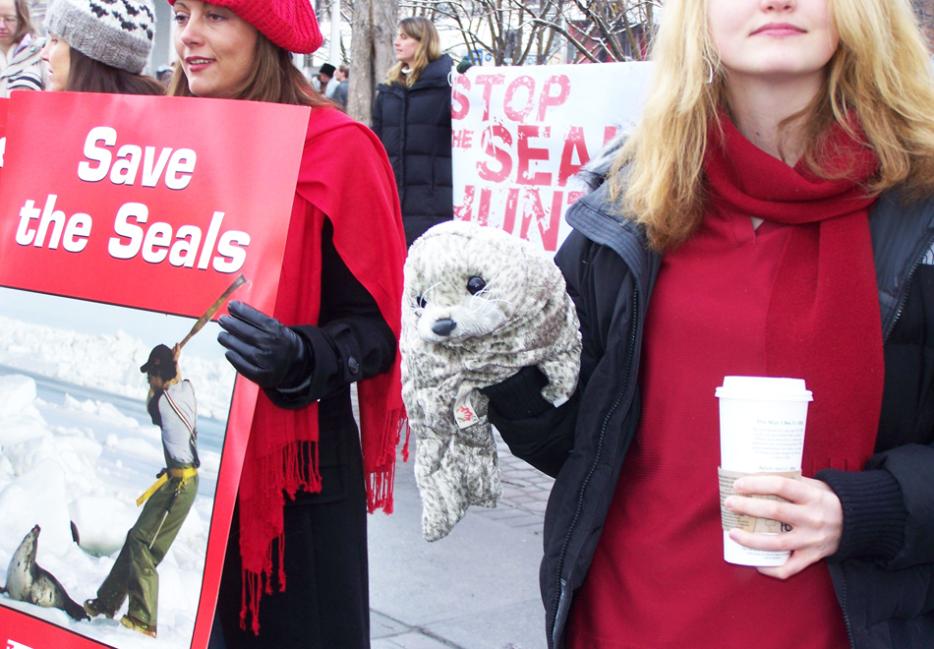Say this for the Humane Society of the United States: their political strategy for attacking Canada’s seal hunt is quite reasonable if you accept their goals. After all, we live in an age where the high practitioners of politics think up winning ideas like, “we’ll avenge the attacks of 9/11 by attacking Iraq,” or, “we’ll defund Obamacare by defaulting on the US debt, because reasons.” So, really, a high-profile segment of the United States’ environmental movement trying to end the seal hunt by targeting sealers’ bread and butter and starting a boycott on Canadian seafood is actually, by these standards, bracingly logical.
Of course, that’s about the only thing about the last few days—of back-and-forth over the seal hunt, a seafood boycott, and Anthony Bourdain’s defense of Canada—that we could call logical. For example, the Humane Society suggests boycotting Canadian salmon. There are many objections you could raise about farmed Canadian salmon—and almost all of it is farmed these days—but these aren’t the guys who are getting in boats in the off-season and killing harp seals.
That said, Bourdain’s defense of the Dominion’s right to hunt seals is endearing, if a bit misguided. Bourdain told the National Post he supports the seal hunt because of the needs of the Inuit to feed themselves—which is a bit of a red herring, since Canada probably couldn’t ban Inuit from hunting for food even if we were inclined to be so cruel. (Inuit treaty rights have to be protected, something anti-seal-hunt activists in this country have recognized for years.) Even if you think the seal hunt should be allowed to continue, we could at least stop explicitly subsidizing it and let nature take its course.
But Bourdain and others are right that if we want to talk about cruelty to animals, the seal hunt would only make the top five outrages list if the world was a much better place. Hamburger doesn’t come from a petri dish (yet), and a lot more people eat it than wear fur-trimmed jackets.
Which isn’t to say that Canada’s—or the world’s—fishing industry couldn’t use a shakeup. They just need the right one—namely, one that addresses the fact that we’re emptying the oceans at an alarming rate. A recent paper from the Fisheries Centre at the University of British Columbia says that while there’s some good news in some fisheries managed by the developing world, there’s still not enough of it , and plenty of bad news remaining elsewhere. Across great swathes of the planet, large predatory fish have been hunted nearly to extinction, causing a disruptive ripple effect down the food chain.
Worse yet, there’s no silver bullet here—and we love silver bullets. The authors explicitly call out the fantasy that there’s some ideologically easy solution like just giving the industry some market-based solution and standing back. Which is to say that if we’re going to preserve a wild ocean—that blue frontier that’s inspired us from Moby-Dick to Captain Nemo and the Nautilus—it’s going to be long, hard work.





